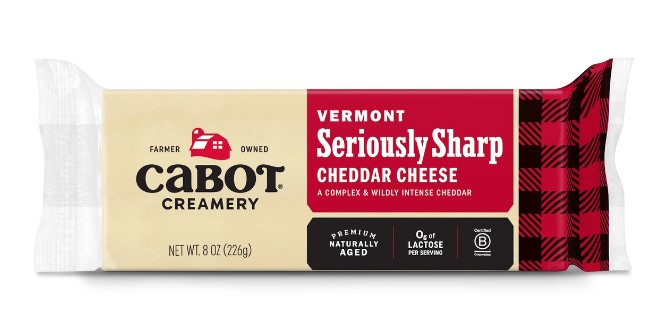The cheese company’s new sustainable packaging strikes the perfect balance of product protection and environmental responsibility.
In a recent interview with Packaging Digest, Jed Davis, Cabot’s Vice President of Strategic Engagement and Sustainability, emphasized the environmental advantages of the company’s new packaging initiatives. This innovative approach is set to yield substantial reductions in resource consumption and greenhouse gas emissions. Specifically, the new packaging is projected to achieve a 23% decrease in fossil fuel emissions per bar, alongside a 19% reduction in water usage during the production of Cabot’s 8oz bar line. To put this in perspective, the water savings amount to three cups per 8oz bar produced.
Additionally, Cabot’s packaging strategy will offset 100,000 pounds of single-use resin by incorporating recycled materials, reinforcing the company’s commitment to sustainable practices. Davis stated, “This initiative not only benefits our operations but also has a broader significance for the industry.”
To further enhance its impact, Cabot has committed to sharing the findings of its grant-funded research with the dairy industry. This collaborative approach aims to extend the positive effects of these sustainability measures across the sector. As companies increasingly recognize the importance of environmental stewardship, Cabot’s efforts set a commendable benchmark for others to follow.
source:
https://www.packagingdigest.com/sustainability/cabot-cheeses-go-green-with-sustainable-packaging


